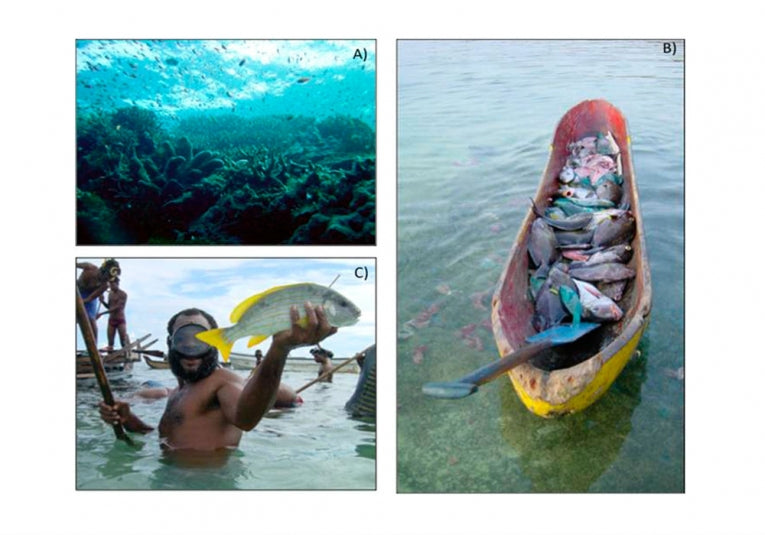Users of natural resources can be the guardians of their fauna and flora, despite the hostility we show towards those who strip the planet bare. In collaboration with several governments and others, co-management schemes have been evaluated by the Wildlife Conservation Society and an international mix of universities from Dar-es salaam to Townsville.
Kenya, Tanzania, Madagascar, Indonesia and PNG (Papua New Guinea) were the countries chosen to investigate various ideas of how co-management works. Underwater visual censuses of reef fish and interviews with more than a thousand "end-users" comprised a great deal of lengthy research.
Co-managed fisheries proved quite successful in most examples studied with an 88% reported compliance with regulations. Only 54% saw their livelihood benefiting which means a large minority had some grouch. The achievement most notable to us might be the greater standing biomass of fish where such schemes operated. Exploitation still remained the aim of the schemes. There was a lot of potential for local elites to benefit more from schemes, but poorer people seemed to benefit less, whatever the management arrangements. This problem basically comes down to the politics of redistribution of power. Microcredit loans to the disadvantaged would be one example of poverty reduction strategy, so obviously needed in these situations.

This fish trader is walking on the reef with a fine catch of what seems to be mackerel; Credit: Joshua Cinner
Although compliance was reportedly good, graduated sanctions had to be applied to achieve this. Exclusive rights fisheries seemed to be the weakest systems at establishing the trust and cooperation needed for compliance. Marriage too played a part. If you were a member, you might find a bride more easily if her father wanted fishing rights! Patrol boats were rare in most countries, so motorised pirates could fish with impunity before the members of a scheme could paddle out to stop them. There is a need to improve livelihoods and management and strengthen local institutions but this policy would reverse some current fishery management policies and requires new partnerships between civil groups and their donors, government social policy and donors.
In effect the extensive study in many differing communities showed:
a) Social and ecological goals were met by these schemes
b) Wealthy members benefit more by co-management
c) Overexploitation becomes a problem when markets are nearby, but users' needs for the fish was a factor in avoiding overexploitation; and
d) The institutions established were very influential on livelihoods and how compliant people were, but seemed to have little effect on the ecology.
Joseph Cinner of James Cook University, Australia led the authorship, aided and abetted by many others in the countries involved and around the world. They must be commended on producing a difficult and useful document which could be used for many years as a guide on what to do and what not to do in these delicate situations.










